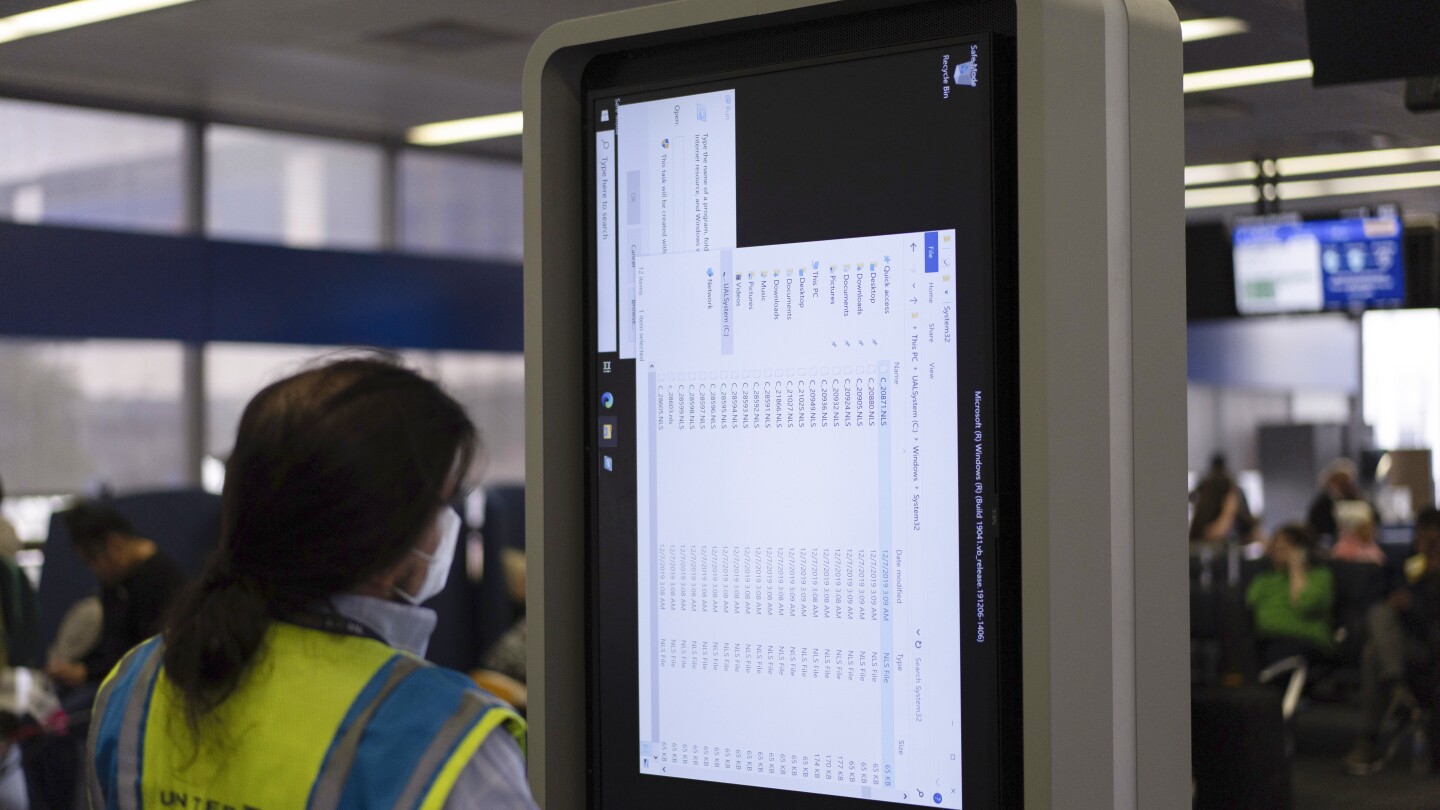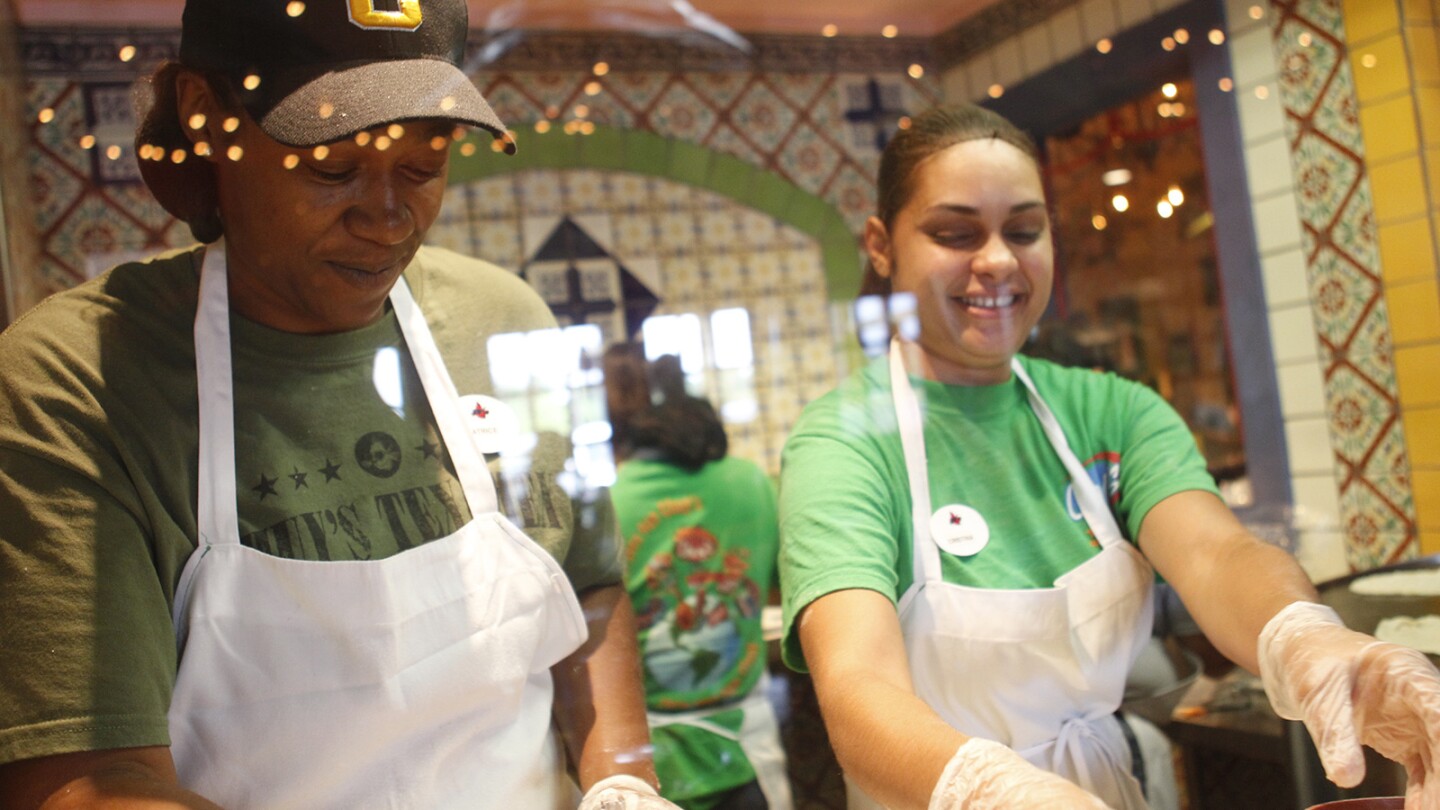Business
Conquering adversity: Female leaders reflect on resilience in the face of overwhelming odds
Published
2 years agoon

It’s official, according to the most recent data on consumer sentiment: as Australians prepare for additional rate increases and as inflation continues to bite, discretionary spending is being dramatically reduced.
In the meantime, almost half of businesses reported rising operational costs, as per the latest ABS data. The business environment is getting more challenging due to labour shortages, supply chain interruptions, and other factors, and things could get worse before they get better.
This binary attitude towards leadership examines business and gender through two opposing lenses; that you can either be a compassionate, empathetic leader or a forthright businessperson. In reality, regardless of where a person sits on the gender spectrum, leaders today must be multifaceted and ever-changing.
Sadly, leadership in Australia is still far from equal. Women, non-binary people and those from minority groups and diverse backgrounds are still significantly outnumbered when it comes to leadership positions. For this to change, attitudes towards gender and the workplace must be reimagined to achieve true equality.
Moreover, despite the fact that the past two years have undoubtedly been among the most difficult, women leaders have encountered unique difficulties throughout this time, which has seen a fall in gender equality. Earlier, Dynamic Business stated that a poll found that women are mistreated and underpaid at work, with the national pay gap anticipated to reach $966 million per week or $51.8 billion per year.
The study revealed that gender discrimination remained the biggest driver of the pay difference, according to the economics of the gender pay gap issued by KPMG, Diversity Council Australia (DCA), and the Workplace Gender Equality Agency (WGEA).
Cashflow woes
The latest Xero Small Business Insights report, Crunch: Cash flow challenges facing small businesses, uses the anonymised and aggregated data of thousands of Xero customers in Australia to deeply dive into small business cash flow trends.
According to the study, 92 per cent of Australian small businesses experience at least one cash flow “crunch” month each year, which is characterised as a period when expenses outpace income. In Australia, 20 per cent of small businesses experience more than six cash flow problems annually.
Monitoring cash flow is critical in a high inflation environment as small businesses try to juggle expenses and revenues. The 6.1% year-on-year rise in the CPI in June shows that inflation continued to rise in the year’s first half. This is the highest inflation rate since the introduction of the GST, which means many small business owners have not had any experience running their businesses in such an environment. So how can a female founder strengthen her business’s resilience in the current business environment?
Ruth Thomas, the founder of the media and communications company ChangeMakers Media, spoke with female business owners to get their tips on fortifying their inner resilience, becoming adaptive, and thriving in the business.
Sarah Thornton, Founder, Finders Keepers says: “Inflation has definitely affected us directly, as a lot of our events have been on hold for two years already, which we’ve had to move to this year. Our supplier and services costs have gone up by 5 to 10 per cent for events and additional staff surcharges, so it’s hard for us to compare things to two years ago. Financially, it’s a whole different game, and it’s been challenging.
“During these times, you’ve got to have creative courage and resilience to try new things. Staying in business is an act of bravery at the moment, which includes riding the ebbs and flows. I’ve definitely learnt a lot about being able to weather the storm in the last two years. You need to be able to get back to basics or change the things you do in business.
“People think they can’t change anything and can’t batten down the hatches, but understanding your profit and loss and numbers is key to knowing what you actually need to survive. However, having a support network and being part of your community as a business is everything. If we didn’t have the community supporting us, we wouldn’t have lasted. If your business doesn’t have a heart and soul, it won’t survive the tough times.”
Anna Ross, Founder Kester Black says: “I launched my first six nail polish colours in 2012 but didn’t stop my full-time job to run Kester Black full time until 2016. When the pandemic hit, we had to lean up. We moved to work from home and stopped packing and sending our own orders. We also had many supply chain issues, with some of our stock taking 14 months to arrive. While these were all challenges, facing obstacles as a young female business leader is something I’ve become accustomed to.
“As a female entrepreneur in the cosmetics world, I often work with or alongside large heritage businesses that are generally owned or managed by men. Unfortunately, young female entrepreneurs are not taken very seriously. But as a creative, I’ve always thought differently, plus I simply don’t take no for an answer. I spent a year emailing a supplier who wouldn’t work with me initially because he said my company was too small. Finally, he took me on, and within a year, Kester Black was their second largest customer.
“Regardless of what’s happening in the business or economic climate, it’s really important that young female entrepreneurs reach out and ask for help. Find mentors and build your connections; doing so helps you with the challenges that come with business and build you into a success. Developing resilience, in tough and good times, as a female business leader is essential; it helps you learn to adapt and forces you to be smarter.”
Jessica Ruhfus, Founder & CEO, Collabosaurus says: “The unpredictability and constant need to adapt quickly over the last 2.5 years have been exhausting for so many businesses. Many of our clients experienced burnout, as did I and, sadly, there’s no easy road ahead as we face more dramatic changes in the economic landscape. At Collabosaurus, we’ve seen both immense growths as well as sharp losses and stagnating periods. Challenges, rejection, tough conversations, and life-altering decision-making come with running a business.
“Throw a global pandemic, recession, major political shifts and flooding into the mix and your capacity for resilience increases out of survival. After burning out, another necessity was to reassess priorities and health, which has been a great positive shift. It’s easy to get caught up in self-doubt and blame, especially when there are external forces at play, but we all need to be easier on ourselves. Connections and relationships are truly everything; I wouldn’t be here without my amazing network of friends, colleagues, clients, team, collaborators and brand partners.”
Kellie Brown, Co-Founder, Fig & Bloom says: “We launched into a new market in Brisbane during the thick of the pandemic, which had its challenges. However, we’ve been open for 10 months now and are understanding our differing markets better than ever. Throughout the past year, we faced two main challenges with this expansion, including developing a culture of excellence with a brand new team and affordable customer acquisition.
“Staff turnover in our industry is quite high, and over time we’ve acquired the ability to recruit, select and train staff quickly. Having strong core values in place and living and breathing those values has been key to our success. We want our team to dream big, and we support ambitious and creative people on their journey. During difficult times I’ve had to be really firm but fair. However, doing the hard things with compassion, love, and kindness has been essential.”
According to Louise Southall, an economist for Xero, inflation has a big impact on small businesses as they struggle to maintain cash flow and remain profitable in a situation where expenses are rapidly increasing.
“It has been a busy few weeks in terms of economic news, with the inflation data and the Reserve Bank Board meeting today. Much of the attention around inflation and interest rates are focused on how households cope. But inflation also hugely impacts small businesses as they try to maintain cash flow and stay profitable in an environment of rapidly rising costs,” Louise said.
“Small businesses relied on their trusted financial advisors more than ever during COVID. But now is not the time to relax – monitoring costs and ensuring prices are set high enough to stay profitable is critical. Small businesses can quickly find themselves under cash flow pressure when costs are rising so fast, not charging enough to cover their expenses.”
Bridging the gap
The research also contains a breakdown of the gender pay gap by income quintile, demonstrating how gender discrimination, a lack of advancement opportunities, and underrepresentation in management affect women throughout their careers. In fact, the World Economic Forum estimated that on a global scale, it would take 257 years to reach economic parity between women and men.
Despite this, two-thirds of new businesses created in Australia in the last decade have been founded by women, according to Xero, and the last 20 years have seen a 46 per cent increase in female-owned businesses.
More needs to be done to guarantee female entrepreneurs survive these challenging economic times, despite the newly elected Labor party promising increased assistance for women in regards to equality, financial equity, and business.
Read more about the online event hosted by One Roof and Pin Payments this month on August 18, discussing resilience, businesses and advice for female founders.
Pin Payments are also sponsoring access to 12 months of business support through One Roof’s memberships for 5 women-led businesses.
Each business owner has the opportunity to elevate a fellow female founder, creating a positive domino effect of much-needed access to business resources, coaching, networks and more for women in business. Apply via the One Roof Website.
For more information on the event, visit https://events.humanitix.com/unstoppable-female-forces-women-and-the-future-of-online-business.
Keep up to date with our stories on LinkedIn, Twitter, Facebook and Instagram.

Business
Worldwide IT outage: Airlines rush to get back on track
Published
7 days agoon
July 20, 2024
Transport providers, businesses and governments on Saturday are rushing to get all their systems back online after long disruptions following a widespread technology outage.
The biggest continuing effect has been on air travel. Carriers canceled thousands of flights on Friday and now have many of their planes and crews in the wrong place, while airports facing continued problems with checking in and security.
At the heart of the massive disruption is CrowdStrike, a cybersecurity firm that provides software to scores of companies worldwide. The company says the problem occurred when it deployed a faulty update to computers running Microsoft Windows, noting that the issue behind the outage was not a security incident or cyberattack.
Here’s the Latest:
Microsoft: 8.5 million devices on its Windows system were affected
Microsoft says 8.5 million devices running its Windows operating system were affected by a faulty cybersecurity update Friday that led to worldwide disruptions.
A Saturday blog post from Microsoft was the first estimate of the scope of the disruptions caused by cybersecurity firm CrowdStrike’s software update.
“We currently estimate that CrowdStrike’s update affected 8.5 million Windows devices, or less than one percent of all Windows machines,” said the blog post from Microsoft cybersecurity executive David Weston.
“While the percentage was small, the broad economic and societal impacts reflect the use of CrowdStrike by enterprises that run many critical services.”
Weston said such a significant disturbance is rare but “demonstrates the interconnected nature of our broad ecosystem.” Windows is the dominant operating system for personal computers around the world.
Austrian doctors’ group calls for better data protection for patients
In Austria, a leading doctors organization said the global IT outage exposed the vulnerability of health systems reliant on digital systems.
“Yesterday’s incidents underscore how important it is for hospitals to have analogue backups” to safeguard patient care, Harald Mayer, vice president of the Austrian Chamber of Doctors, said in a statement on the organization’s website.
The organization called on governments to impose high standards in patient data protection and security and on health providers to train staff and put systems in place to manage crises.
“Happily, where there were problems, these were kept small and short-lived and many areas of care were unaffected” in Austria, Mayer said.
Germany warns of scams after major IT outage
BERLIN — The German government’s IT security agency says numerous companies are still struggling with the consequences of a far-reaching technology outage.
“Many business processes and procedures have been disturbed by the breakdown of computer systems,” the BSI agency said on its website.
But the agency also said Saturday that many impacted areas have returned to normal.
It warned that cybercriminals were trying to take advantage of the situation through phishing, fake websites and other scams and that “unofficial” software code was in circulation.
The agency said it was not yet clear how faulty code ended up in the CrowdStrike software update blamed for triggering the outage.
European airports appear to be close to normal
LONDON — Europe’s busiest airport, Heathrow, said it is busy but operating normally on Saturday. The airport said in a statement that “all systems are back up and running and passengers are getting on with their journeys smoothly.“
Some 167 flights scheduled to depart from U.K. airports on Friday were canceled, while 171 flights due to land were axed.
Meanwhile, flights at Berlin Airport were departing on or close to schedule, German news agency dpa reported, citing an airport spokesman.
Nineteen flights took off in the early hours of Saturday after authorities exempted them from the usual ban on night flights.
On Friday, 150 of the 552 scheduled inbound and outbound flights at the airport were canceled over the IT outage, disrupting the plans of thousands of passengers at the start of the summer vacation season in the German capital.
German hospital slowly restoring its systems after widespread cancellations
BERLIN — The Schleswig-Holstein University Hospital in northern Germany, which on Friday canceled all elective surgery because of the global IT outage, said Saturday that it was gradually restoring its systems.
In a statement on its website, it forecast that operations at its two branches in Kiel and Luebeck would return to normal by Monday and that “elective surgery can take place as planned and our ambulances can return to service.”
Britain’s transport system still trying to get back on track
LONDON — Britain’s travel and transport industries are struggling to get back on schedule after the global security outage with airline passengers facing cancellations and delays on the first day of summer holidays for many school pupils.
Gatwick Airport said “a majority” of scheduled flights were expected to take off. Manchester Airport said passengers were being checked in manually and there could be last-minute cancellations.
The Port of Dover said it was seeing an influx of displaced air passengers, with hourlong waits to enter the port to catch ferries to France.
Meanwhile, Britain’s National Cyber Security Center warned people and businesses to be on the lookout for phishing attempts as “opportunistic malicious actors” try to take advantage of the outage.
The National Cyber Security Center’s former head, Ciaran Martin, said the worst of the crisis was over, “because the nature of the crisis is that it went very wrong very quickly. It was spotted quite quickly and essentially it was turned off.”
He told Sky News that some businesses would be able to get back to normal very quickly, but for sectors such as aviation it would take longer.
“If you’re in aviation, you’ve got people, planes and staffs all stranded in the wrong place… So we are looking at days. I’d be surprised if we’re looking at weeks.”
Germany airline expects most of its flights to run normally
BERLIN — Eurowings, a budget subsidiary of Lufthansa, said it expected to return to “largely scheduled” flight operations on Saturday.
On Friday, the global IT outage had forced the airline to cancel about 20% of its flights, mostly on domestic routes. Passengers were asked to take trains instead.
“Online check-in, check-in at the airport, boarding processes, booking and rebooking flights are all possible again,” the airline said Saturday on X. “However, due to the considerable extent of the global IT disruption there may still be isolated disruptions” for passengers, it said.
Delta Air Lines and its regional affiliates have canceled hundreds of flights
DALLAS — Delta Air Lines and its regional affiliates canceled more than a quarter of their schedule on the East Coast by midafternoon Friday, aviation data provider Cirium said.
More than 1,100 flights for Delta and its affiliates have been canceled.
United and United Express had canceled more than 500 flights, or 12% of their schedule, and American Airlines’ network had canceled 450 flights, 7.5% of its schedule.
Southwest and Alaska do not use the CrowdStrike software that led to the global internet outages and had canceled fewer than a half-dozen flights each.
Portland, Oregon, mayor declares an emergency over the outage
PORTLAND, Ore. — Mayor Ted Wheeler declared an emergency Friday after more than half of the city’s computer systems were affected by the global internet outage.
Wheeler said during a news conference that while emergency services calls weren’t interrupted, dispatchers were having to manually track 911 calls with pen and paper for a few hours. He said 266 of the city’s 487 computer systems were affected.
Border crossings into the US are delayed
SAN DIEGO — People seeking to enter the U.S. from both the north and the south found that the border crossings were delayed by the internet outage.
The San Ysidro Port of Entry was gridlocked Friday morning with pedestrians waiting three hours to cross, according to the San Diego Union-Tribune.
Even cars with people approved for a U.S. Customers and Border Protection “Trusted Traveler” program for low-risk passengers waited up to 90 minutes. The program, known as SENTRI, moves passengers more quickly through customs and passport control if they make an appointment for an interview and submit to a background check to travel through customs and passport control more quickly when they arrive in the U.S.
Meanwhile, at the U.S.-Canada border, Windsor Police reported long delays at the crossings at the Ambassador Bridge and the Detroit-Windsor tunnel.
Latest
More Americans apply for jobless benefits as layoffs settle at higher levels in recent weeks
Published
1 week agoon
July 18, 2024
U.S. filings for unemployment benefits rose again last week and appear to be settling consistently at a slightly higher though still healthy level that the Federal Reserve has been aiming for.
Jobless claims for the week ending July 13 rose by 20,000 to 243,000 from 223,000 the previous week, the Labor Department reported Thursday. It’s the eighth straight week claims came in above 220,000. Before that stretch, claims had been below that number in all but three weeks so far in 2024.
Weekly unemployment claims are widely considered as representative of layoffs.
The Federal Reserve raised its benchmark borrowing rate 11 times beginning in March of 2022 in an attempt to extinguish the four-decade high inflation that shook the economy after it rebounded from the COVID-19 recession of 2020. The Fed’s intention was to cool off a red-hot labor market and slow wage growth, which it says can fuel inflation.
AP AUDIO: More Americans apply for jobless benefits as layoffs settle at higher levels in recent weeks
AP correspondent Shelley Adler reports filings for unemployment benefits have risen.
“The Fed asked to see more evidence of a cooling economy, and for the most part, they’ve gotten it,” said Chris Larkin, managing director of trading and investing at E-Trade. “Add today’s weekly jobless claims to the list of rate-cut-friendly data points.”
Few analysts expect the Fed to cut rates at its meeting later this month, however most are betting on a cut in September.
The total number of Americans collecting unemployment benefits rose after declining last week for the first time in 10 weeks. About 1.87 million Americans were collecting jobless benefits for the week of July 6, around 20,000 more than the previous week. That’s the most since November of 2021.
Continuing claims have been on the rise in recent months, suggesting that some Americans receiving unemployment benefits are finding it more challenging to land jobs.
And there have been job cuts in a range of sectors in recent months, from the agricultural manufacturer Deere, to media outlets like CNN, and elsewhere.
The four-week average of claims, which evens out some of the week-to-week volatility, rose by 1,000 to 234,750.
Strong consumer demand and a resilient labor market has helped to avert a recession that many economists forecast during the extended flurry of rate hikes. As inflation continues to ease, the Fed’s goal of a soft-landing — bringing down inflation without causing a recession and mass layoffs — appears within reach.
While the labor market remains historically healthy, recent government data suggest some weakening.
The unemployment rate ticked up to 4.1% in June, despite the fact that America’s employers added 206,000 jobs.
Job postings in May rose slightly to 8.1 million, however, April’s figure was revised lower to 7.9 million, the first reading below 8 million since February 2021.
Austin Local News
Darden Restaurants buys Tex-Mex chain Chuy’s for $605 million
Published
1 week agoon
July 17, 2024
Darden Restaurants is adding Tex-Mex to the menu.
The parent company of Olive Garden, LongHorn Steakhouse, Yard House and other chains, said Wednesday it’s buying Chuy’s for approximately $605 million.
Darden said it will acquire all outstanding shares of Chuy’s for $37.50 per share. Those shares closed at $25.27 apiece on Wednesday, then soared past $37 in after-hours trading once the deal was announced. Darden shares fell 1% in after-hours trading.
Darden said the boards of Darden and Chuy’s have unanimously approved the acquisition. The deal is expected to close later this year, if it’s approved by Chuy’s shareholders.
Chuy’s Holdings Inc. was founded in Austin, Texas, in 1982. It now operates 101 restaurants in 15 states and has 7,400 employees. It’s known for its eclectic decor and fresh food, including handmade tortillas and sauces.
Like Darden, Chuy’s owns and operates all of its restaurants. Darden President and CEO Rick Cardenas said Chuy’s is a differentiated brand with strong growth potential that will expand Darden’s dining options.
Darden, based in Orlando, Florida, operates more than 1,900 restaurants and has 190,000 employees. It also owns Ruth’s Chris Steak House, Cheddar’s Scratch Kitchen, The Capital Grille, Seasons 52, Eddie V’s and Bahama Breeze.
“Based on our criteria for adding a brand to the Darden portfolio, we believe Chuy’s is an excellent fit that supports our winning strategy,” Cardenas said in a statement.
Chuy’s Chairman, CEO and President Steven Hislop said the acquisition will accelerate Chuy’s business goals and expand the brand to more communities.
The deal comes as both restaurant companies have been struggling with a downturn in customer traffic due to consumer concerns about inflation.
In Darden’s fiscal fourth quarter, which ended May 26, same-store sales — or sales at restaurants open at least a year — were flat compared to the prior year. Chuy’s same-store sales were down 5% in its first quarter, which ended March 31.
Investment bank Jefferies downgraded shares for both restaurant chains earlier this month, saying they’re being squeezed by price promotions at fast-food chains like McDonald’s as well as at casual dining peers like Chili’s and Applebee’s.







